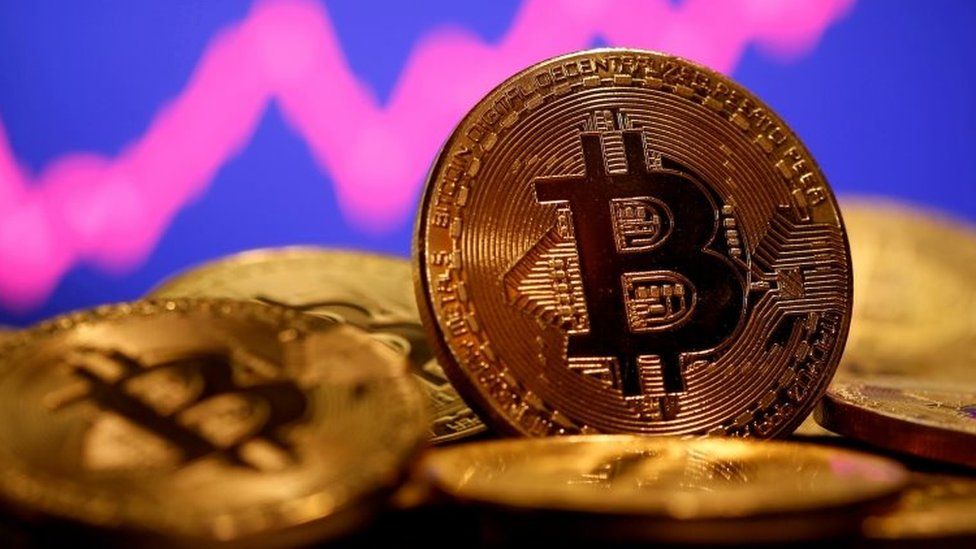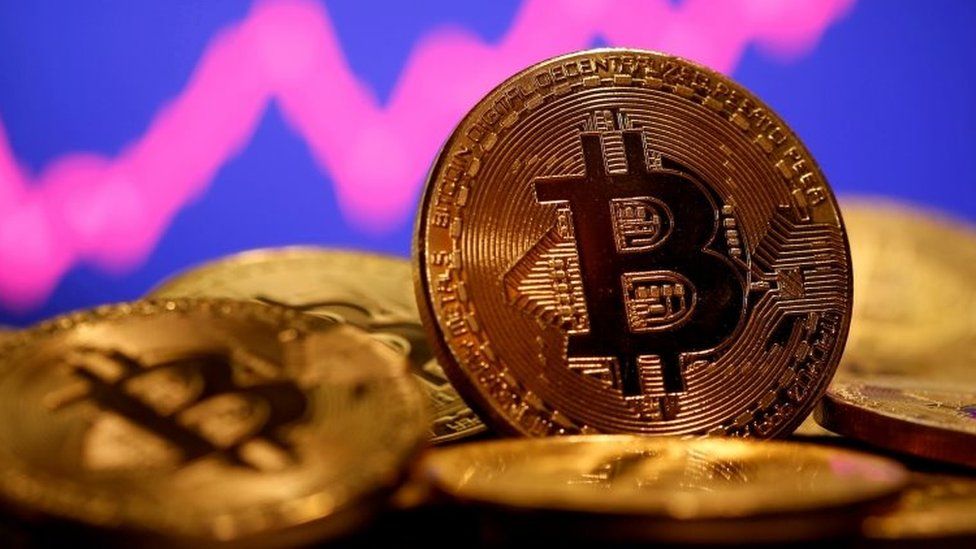
Bitcoin has seen over the past year both its value and popularity explode. Hitting over $51,000 at the time of publication of this story, the cryptocurrency was once viewed as mysterious by many a decade ago. It’s now seen as largely mainstream: Major financial names like PayPal (PYPL) – Get Report and Visa (V) – Get Report today offer crypto services and increasingly more online retailers are accepting the digital currency. Even tech giant Nvidia (NVDA) – Get Report has created a new chip made just for cryptocurrency mining. (Cryptocurrencies, which lack a central banking system, can be digitally “mined” for new currency, offering big paydays for lucky digital diggers.)
But as the value in bitcoin rises to new daily highs and other currencies and projects have joined the race, regulators are taking watch — and digital currency bubbles will pop.
For perspective on Bitcoin’s surge and what’s ahead, TheStreet tapped the expertise of Dave Balter, the chief executive of Flipside Crypto, which provides analytics and business intelligence to crypto organizations and pens a regular column in TheStreet. Balter, who is also a partner with venture capital firm True Ventures, has run Flipside since 2017.
The following exchange, which was conducted over email, was lightly edited for clarity.
TheStreet: Despite Bitcoin’s relative volatility, we’ve seen an explosion in its value over the past several months, especially from October to now. At the same time, consumers have seen the name pop up at more and more retailers and celebrity CEOs like Elon Musk of Tesla (TSLA) – Get Report are shaking up the market with tweets about cryptocurrencies like Bitcoin and Dogecoin. Is crypto now truly mainstream? Why?
Balter: Bitcoin’s incredible recent rise in price is due to two things: belief systems and recent global trends.
Bitcoin has always been about technical stability and network effects. Early on, Bitcoin was judged by whether it was fail-proof: Would it get hacked? Was “decentralization” a workable model? When it halved, did it continue to perform? Over the last 10-plus years, many of those concerns have been resolved. Bitcoin works. It doesn’t break.
On the network effects side, like any form of money, Bitcoin’s value is denominated largely by how many people believe in it. Yuval Noah Harari’s book, “Sapiens,” notes that gold and the dollar are largely valued because enough people believe that they will maintain value. The same goes for Bitcoin; early on a small number of people believed which propelled early value accumulation, but now the network effects have become significant with celebrity investors and brand-name institutions supporting its belief system.
Recent global trends have also played a heavy hand in this. COVID-19 has transformed the world’s digital behaviors, accelerating 10 years of evolution into the single year of 2020. An example outcome of “work from home” and social engagement via digital tools was evident in the Reddit-GameStop (GME) – Get Report activity: The ability for an unknown Reddit community to transform the value of GameStop stock changed the entire playing field of stock volatility. More importantly, it showed the capability of the few to control the larger financial outcome. Bitcoin fits incredibly nicely into a similar narrative.
TheStreet: Springing off that, the world of cryptocurrencies is much bigger than Bitcoin, right? If it’s taken this long for Bitcoin to really gain legitimacy, what do you see for the other projects like Ethereum and the lesser known ones? Are any more likely to take off in the same way soon or will each have to prove itself?
Balter: Bitcoin has created the wake for many others to follow in. And while Bitcoin is famous for being the first — with movie-ready lore around a mysterious creator Satoshi Nakamoto, and $500 million pizza buying — it is relatively single-use case, as a store of value. Others, including Ethereum, have broader use cases, which makes the arc of their activities — and their potential — quite different.
Take FLOW for example, which provides the underlying blockchain technology for NBA Top Shots, a “non-fungible” token market. The platform has already generated hundreds of millions in real dollar sales of the digital NBA trading cards. Capturing the minds and passion of collectors of all types, this is clearly a different form of belief system — one that has generated actual revenues.
Decentralized finance applications rose in prominence last fall, largely on the Ethereum blockchain. These allowed developers to generate financial applications that replicated offerings you might have seen from the likes of Fidelity (FWAFX) – Get Report or other large banks. Nearly $10 billion has flooded into decentralized finance, where customers can receive yield without having to wait for traditional trading hours or uncountable service provisions. This proved a real use case for Ethereum.
TheStreet: There’s so much in the headlines now — Bitcoin, Dogecoin, even those digital art projects and, as you mentioned, NBA Top Shots. What do you think people should look out for right now?
Balter: Non Fungible Tokens (NFTs) present an endless amount of use cases for blockchain technology — from art to sports collectibles to game items. … Anything can be made unique and valuable. With so much opportunity, and our digitally-driven world today, there is always going to be hype before things settle. But NFTs are only just getting started.
Flipside Crypto recently released “Hype or Legit: How to Assess if a Blockchain Project Has Real Potential,” which clarifies the complexity of judging a project from price movement and news. To determine long term viability, fundamentals are critical: How many active accounts are there, and how active is the developer community is much more important than whether or not the short-term price is being driven up by hype.
TheStreet: As crypto’s getting more popular, we’re seeing regulators step up scrutiny, too, right? Is that a threat to the future of crypto?
Balter: The regulatory scrutiny is wonderful: It justifies the reality that crypto is here to stay, and is necessary to bringing effective and clear regulation to the industry. Blockchain is transformative technology that is enabling the creation of an entirely new financial ecosystem. Like any new technology — the internet, mobile, the cloud — it’s often misunderstood early in its cycle and new rules need to be developed to operate efficiently. Blockchain’s promise is unable to be stopped at this point, given its globality, decentralization and real-use cases coming to light. With Gary Gensler becoming the Securities and Exchange Commission chair, expect to see an incredibly blockchain-savvy individual enabling clear lines of demarcation that should — over time — help the entire industry thrive.
TheStreet: On that note, some view cryptocurrencies as having a sinister element to them. What is your take?
Balter: The “sinister” element of cryptocurrencies is an old trope that frankly doesn’t have much merit anymore. All currencies are used for criminal activities. According to the United Nations, it is estimated that 2% to 5% of global gross domestic product is annually connected to money laundering and illicit activities. In Chainalysis’s 2021 report, the criminal share of all cryptocurrency activity was at .34%, down from 2.1% in 2019.
TheStreet: Finally, circling back to the first question, as crypto products become viewed as more legitimate, are the stakes higher now? If, say, Bitcoin really tumbles or some other controversy erupts, could it all fall apart?
Balter: The question isn’t if Bitcoin tumbles, but when. But it also isn’t if Bitcoin rises, but when. Bitcoin’s volatility is part of the cycle, as belief systems continue to ebb and flow. There are enough network effects to stimulate continued growth, but over the years we’ve seen different levels of interest. This will continue, with different impacts. Will Bitcoin ever see $10,000 again? Very unlikely; that era is long gone. But will it see $30,000 again? It could happen. Just as $100,000 is inevitable — it’s all a matter of time.
The Street




















































